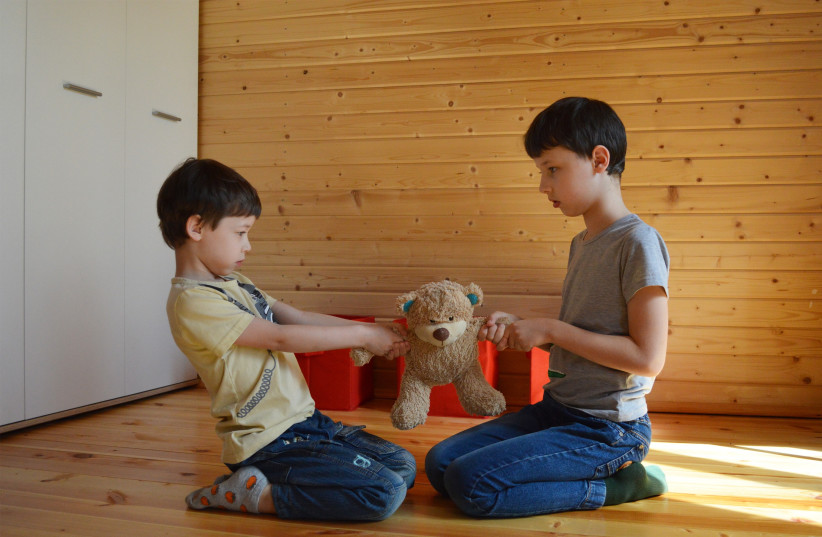Who doesn’t want their kids to be best friends? Every parent hopes that the relationship between siblings at home will be ideal, but sometimes the reality is less rosy.
The kids fight, bully each other, pull at, belittle and tease each other and you’re at a loss; is it right to intervene? take sides? ignore?
Liraz Sneh Or, social worker, parent instructor and workshop leader, offers several ways to deal with rivalry between children:
Don’t judge
Don’t determine who started it, who’s guilty, who’s the offender and who’s the victim. You think you know how the fight started and what is each child’s part in the incident, but really you only see the tip of the iceberg.
Maybe hours or days earlier there was teasing, insults, irritating from one side and the fight you just saw is the reaction. Instead of saying “why are you fighting,” say, “I don’t know who started it, but I love you both equally.”
When you judge who’s right and who’s wrong, you break the balance in the relationship between the kids. When you intervene, you (unintentionally) further weaken the weak child and send the wrong message that they can’t manage on their own. Kids depend on you and your protection and reacting the wrong way may affect them in social situations outside the family.
Find the moment to pave the way to talk with all the kids.
After the fight is over and the kids have calmed down (and you too) sit back and talk. “Let’s think about how we can behave differently”; “Next time you won’t fight again about the same thing”; or “What can you do instead of grabbing/hitting your sibling.”
Let the kids be partners and come up with a variety of options and alternative ways to act. Kids who can find solutions to fights with siblings will feel valuable and their sense of competence will be strengthened, which will later lead to fewer quarrels.
Allow them to express their feelings
In fights, kids experience a variety of strong emotions such as anger, jealousy, insults, competitiveness and vulnerability. An emotion that hasn’t been adequately expressed or addressed may intensify and lead to emotional flooding.
So, it’s important that kids express and share their feelings. This will create a good foundation for the continued development of positive relationships that will be gradually built as kids mature.
Work on their formation
Organize proactive family meetings of family time together and plan in advance, possibly with the kids, what they want to do. Spend time together, play indoor or outdoor games, eat favorite foods.
The kids will learn to be together peacefully and enjoy time with each other. When the kids are close to each other, the family is more cohesive.
Remember, good also comes out of quarrels
The family is the social field where kids learn to deal with differences of opinion, stand up for themselves and express what they want. They learn to negotiate, resolve conflicts, advocate for their needs yet also let things pass, be considerate, flexible and reconcile.
All these are important skills for success in life. Give siblings opportunities to practice building interpersonal relationships and acquire tools that will be used throughout their lives.
This article was written in partnership with the JAMA parenting app.




